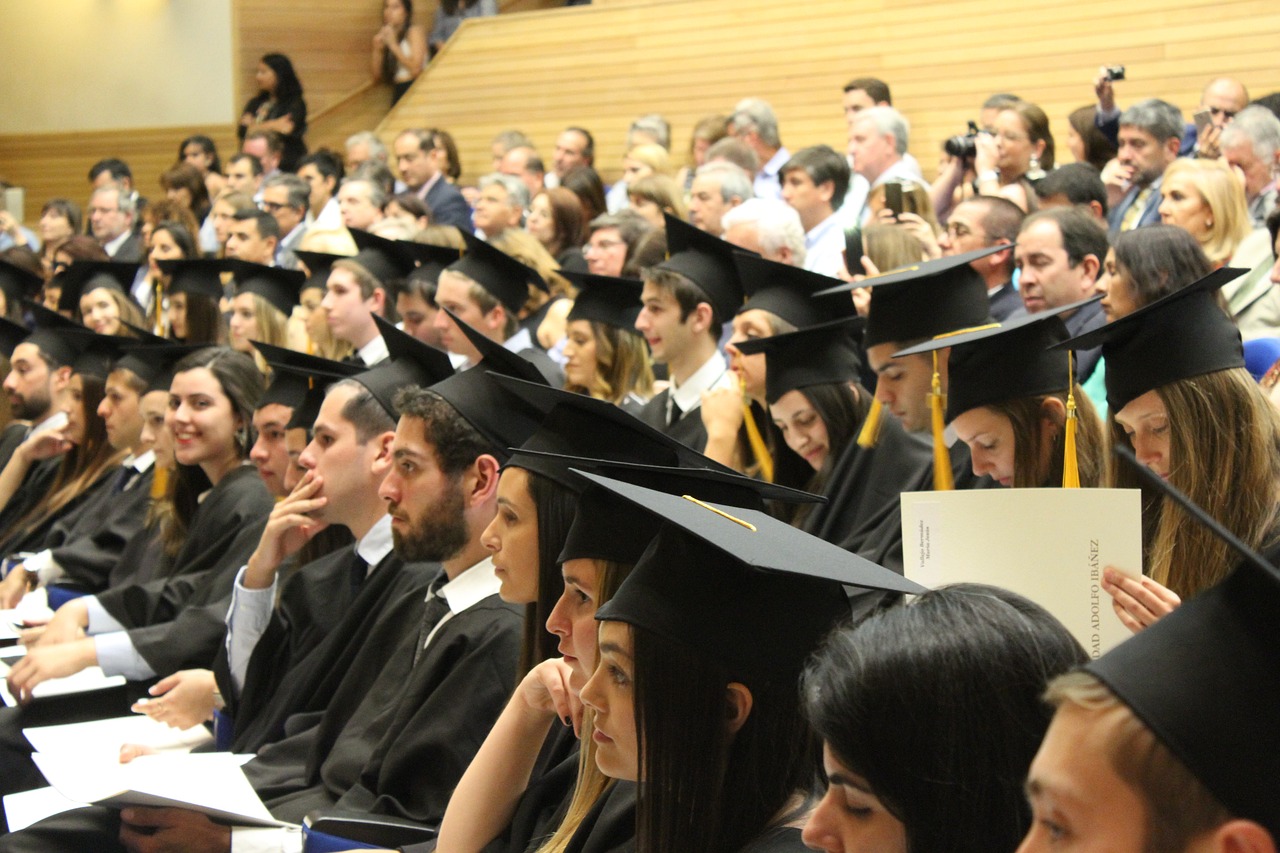What is the difference between college and university? “College vs University” is an intriguing issue that these two terms often confuse students and parents when choosing an institution of higher education especially in countries such as the U.S. Colleges typically focus on undergraduate education, are smaller in size, emphasize faculty-student interaction, and provide a relatively intensive learning environment. In contrast, Universities are much larger, have more academic departments, offer degrees at multiple levels from undergraduate to master’s and doctoral, and typically have more research opportunities.
Understanding these surprising differences between Colleges and Universities can help you make more informed educational choices based on your academic goals and personal needs.
What is a University?
The University offers specialized study pathways and practical opportunities through different academic departments and colleges, such as the School of Medicine, the School of Fine Arts, and the School of Law. The University also has research centers that support cutting-edge scientific research and offer practicum and internship opportunities. Both private and public university offers undergraduate and postgraduate degrees but are also committed to the development of holistic and creative skills in their students.
The educational model of the university includes diverse curricular programs, such as interdisciplinary courses and joint degree programs, designed to enhance academic competence, critical thinking, problem-solving and leadership skills. When you plan to study at a university, the most important thing is to find student housing for you to have a better study life.
What is a College?
A College is an institution that provides higher education and may specialize in undergraduate education or may offer programs in specific fields.
Liberal arts and sciences colleges offer primarily undergraduate education, are smaller schools with strong faculty-student relationships, cover a wide range of arts and sciences courses, and some offer master’s programs.
Community colleges have lower tuition and offer associate’s degrees, and students can transfer to a four-year university for a bachelor’s degree after completing two years of study.
Other colleges, such as Dartmouth College, despite the “college” in their name, function like universities, focusing on undergraduate education and traditional disciplines.
College vs University: The Critical Difference in the US and UK
One of the biggest sources of confusion for international students is that the terms “College” and “University” mean completely different things depending on which side of the Atlantic you are on. Here is how to distinguish them so you don’t get mixed up.
1. In the United States
In the US, the terms are often used interchangeably.
- Socially Synonymous: Americans will say “I’m going to college” even if they are attending a large university like NYU or UCLA.
- Academic Level: Both refer to post-secondary education (after high school). A “College” in the US usually offers four-year Bachelor’s degrees, just like a University.
- The Nuance: As mentioned above, a “University” is technically a collection of smaller colleges (e.g., The College of Engineering within the University of Illinois).
2. In the United Kingdom
In the UK, the distinction is strict and clear. They are rarely interchangeable.
- College = Further Education (Pre-University): In the UK, “College” (or Sixth Form College) is typically where students go between the ages of 16 and 18 to finish high school qualifications (like A-Levels or BTECs) before university. It is not where you get a Bachelor’s degree.
- University = Higher Education: This is where you go for your undergraduate degree (Bachelor’s) and postgraduate studies.
- The “Oxbridge” Exception: At ancient universities like Oxford and Cambridge, “colleges” are residential and social communities within the university. However, you still graduate with a degree from the University, not the college.
💡 Pro Tip for Student Housing:
If you are searching for accommodation on uhomes.com, make sure you know your destination’s terminology.
- Going to the UK? Search for housing near your University (e.g., University of Manchester), not a local college, unless you are doing a foundation year.
- Going to the US? Whether it’s Boston College or Boston University, you are looking for off-campus student housing tailored for undergraduates.
What is a College within a University?
‘College within a University’ refers to multiple smaller academic units within a large university. This structure is widely used in many universities in the United States and the United Kingdom, such as New York University, University of Oxford, Columbia University and University of Cambridge.
These colleges usually specialize in specific subject areas, such as the Faculty of Arts, the Faculty of Business, or the Faculty of Engineering. Each college has a degree of independence in managing its programs and faculty while benefiting from the overall management, administrative support, and resource allocation of the university.
What is the difference between a College and a University?
| Feature | College | University |
|---|---|---|
| Primary Focus | Undergraduate education & teaching. | Research and graduate studies (alongside undergraduate). |
| Institution Size | Typically smaller campuses and student populations. | Usually large, sometimes massive campuses with many students. |
| Degrees Offered | Mainly Associate’s and Bachelor’s degrees; Certificates. | Full range: Bachelor’s, Master’s, and Doctoral (PhD) degrees. |
| Class Size & Interaction | Smaller classes; more direct interaction with professors. | Larger lecture halls (especially for intro classes); often taught by TAs. |
| Program Variety | Limited range, often specialized (e.g., Liberal Arts, Vocational). | Wide array of diverse colleges and schools under one roof (e.g., Law, Med, Engineering). |
| Cost & Tuition | Generally lower tuition, especially at community colleges. | Often higher tuition fees (public universities are cheaper than private ones). |
Different Learning Purposes
Are you curious about the purpose of studying in college vs university?
The College focuses on practical teaching and vocational training, aiming to develop students’ skills and practical abilities in specific fields. Courses are often organized around market needs to help students enter the workplace directly after graduation without additional on-the-job training. Colleges often partner with industry to provide hands-on opportunities and cooperative education so that students can gain real work experience while in school, thus enhancing career competitiveness.
The difference between university and college is that universities are focused on academic research and theoretical knowledge. Universities are usually categorized into different types such as Doctor of Medicine, general and basic, each with a different focus. Universities are committed to producing research-oriented individuals, with courses that emphasize research, experimentation, and academic papers.
Different Lengths of Educational Systems
There are significant differences between colleges and universities in terms of academic programs and teaching styles:
When you compare College vs. University, college always has small class sizes and offers degrees such as Certificates, Diplomas and Degrees. The duration of these programs is 1 year, 2-3 years, or 3-4 years, respectively.
Universities, by contrast, offer Bachelor’s Degrees (BA), Honors Bachelor’s Degrees (HBA), Master’s Degrees (MA), and Doctoral Degrees (PhD) mainly in large class sizes. The duration of study is usually 3-4 years for BA degrees, 1-2 years for MA degrees and 4-6 years for PhD degrees.
From the above information, we can know the difference between 4-year college and university.
Different Curriculum Structure
When it comes to choosing a college or university. Each has its unique characteristics, especially in terms of curriculum and academic requirements.
College:
The College offers a flexible program that focuses on hands-on practice with less academic pressure. Students can gain practical experience through internships or co-op programs and earn some income while learning basic theory. Graduates can often apply for work visas and permanent residence through related programs. Colleges also allow students to transfer credits to universities to further their education.
Universities:
Universities emphasize in-depth theoretical knowledge and academic research, with rigorous course requirements that include numerous essays, presentations and frequent exams. The academic environment is more intense and focuses on developing research skills and professional competence, requiring students to invest more time and effort.
The above information tells you the difference between college vs university courses, and you can consider which one is suitable for you.
University vs College: Pros and Cons
| University | College | |
|---|---|---|
| Pros | 1.Various research-oriented programs and courses. 2.More many academic resources and opportunities for students. 3.Larger campuses and more diverse student community. 4.The length of study: undergraduate degree(3-4 years) , master degree(1-2 years) , and doctoral degree(4-6 years). |
1. Flexible curriculum and smaller class sizes. 2. Practice-oriented teaching and personalized instruction.More accessible to accumulate work experience in paid internship courses. 3. Tuition fees are relatively low. 4. The length of study: Certificate(1 year), Diploma(2-3 years) and bachelor’s Degree(3-4 years). |
| Cons | 1.Larger class sizes, meaning less personalized learning. 2.Greater academic pressure. 3.Higher tuition fees in private universities. |
1.Limited research opportunities and academic resources. 2.Smaller campuses with limited extracurricular activities. 3.Less degree options. |
University vs College: Difference Between Community College and University
Universities and community colleges are the two main types of educational institutions in the U.S. higher education system, and the main differences between community colleges and universities are in the academic goals, degree conferral, length of study, and student populations.
Degrees and programs:
Universities Offer bachelor’s, master’s, and doctoral degrees covering a wide range of subject areas and emphasizing a well-rounded education in theoretical knowledge and research skills.
Community colleges offer associate degrees and vocational certificates that emphasize practical skills for quick entry into the workplace or further education.
Length of study and tuition:
Community colleges are usually two years in length and have lower tuition costs, making them an affordable option for many students, especially those who need to balance work and school.
Universities typically take four years to complete and have higher tuition costs, but offer more campus resources and academic opportunities.
Admission Requirements:
Community colleges typically have an open admissions policy and most applicants are accepted as long as they meet the basic requirements, making them ideal for students who need a second chance or to reorganize their education.
Universities have more rigorous admissions criteria, requiring excellent academic performance, standardized test scores, and performance in extracurricular activities.
Campus Life:
Universities have larger campuses and a rich campus life, including clubs, sports and cultural activities, that allow students to expand their relationships and enhance their quality of life.
Community colleges have smaller campuses, fewer campus activities, and a simpler campus life with a predominantly local student body, many of whom work part-time.
Should You Attend a College or a University?
Whether you choose to attend a college or university depends on your personal needs and goals. Here are a few points to consider:
Academic reputation and program options:
Universities typically offer a more diverse selection of degrees and majors, especially graduate programs. If you have clear academic goals or plan to pursue an advanced degree, a university may be a better choice. Colleges usually focus on undergraduate education with a narrower range of programs.
Faculty-to-student ratio and quality of instruction:
Colleges typically have smaller faculty-to-student ratios, and students can receive more personal attention and guidance. Conversely, the universities have larger class sizes, especially for introductory courses, but may also have more resources and facilities to support teaching and research.
Campus life and activities:
Universities typically have larger campuses and more student organizations, sports activities, and social opportunities. If you’re looking for a rich and varied campus life, a college may be a better fit for you. College communities may be more tightly knit and students are more likely to develop strong friendships with each other, but activity options may be relatively few.
Research and internship opportunities:
The universities usually have more research programs and internship opportunities, especially in the social sciences programs. If you wish to get involved in research or gain more internship experience, universities may offer more platforms and resources. Colleges may focus more on classroom instruction, but some have strong partnerships with businesses and communities that offer internships and practicum opportunities.
Location and tuition:
Consider how the college or university’s location will affect your personal and professional development. Universities typically have higher tuition but also have more scholarship and financial aid opportunities. Colleges have relatively lower tuition and may be more financially advantageous.
How does a College become a University?
The process of a college becoming a university is a complex and multifaceted one, and there are some important factors involving academic, administrative, legal and social aspects of College vs. University.
Diversified academic programs:
Universities should offer programs at multiple levels such as undergraduate, masters and doctoral. This requires adequate resources such as laboratories, libraries and research centers. In addition, a strong faculty should be responsible not only for teaching but also for conducting independent research.
Strong Research Capacity:
Research is the core of a university. The institutions need first-class research facilities and equipment, as well as adequate financial support for research. Universities should actively participate in various research programs, publish high-level academic papers, and establish cooperative relationships with other research institutions and industry.
Accreditation and Assessment:
Universities must pass a rigorous national or regional accreditation process. These assessments include a comprehensive review of academic programs, faculty, research capacity, infrastructure, and management. Only through these assessments can a college become a university status.
Effective Management and Governance:
Comprehensive universities often have complex organizational structures that include multiple colleges and affiliated institutions. Effective management and governance systems are essential for coordinating these sectors and promoting the university.
Conclusion
College vs University differ mainly in their educational systems, degree conferment and academic scope. The difference between college and university is that colleges focus more on individualized education and quality of teaching. While universities emphasize academic research and comprehensive education. The choice of a suitable educational institution should be based on the individual’s learning objectives and needs.
If you are looking for student housing in the USA, uhomes.com is a good choice for you to choose an apartment to live in New York, Champaign, Buffalo, Cincinnati, or College Station. There are different types of houses for you to rent, and you can fill in a form. There will our consultant contact with you soon.

FAQ
Universities and colleges are similar in many ways, but there are some key differences. Universities are typically larger, offer a wider choice of disciplines and research opportunities, and often include multiple colleges. Colleges, by contrast, may specialize in specific fields or disciplines, are smaller, and offer predominantly undergraduate education. Universities may award bachelor’s, master’s, and doctoral degrees, while colleges usually only award bachelor’s degrees.
The choice to attend a university or college depends on your career goals and interests. Universities typically offer a broader range of academic programs and research opportunities for those who want to study a particular field in depth or pursue an advanced degree. Colleges, however, are more hands-on and vocationally oriented, and are suitable for students who wish to enter the workforce quickly or pursue a technical career. Whichever you choose, you should consider your career plans and learning preferences and select the educational institution that best meets your needs.
The difference between universities and colleges is that universities typically offer bachelor’s, master’s and doctoral degrees in a wider range of disciplines and with better research facilities. Colleges generally focus on undergraduate education, with a narrower range of courses and fewer research opportunities. Universities are larger and more resourceful, offering more opportunities for academic and professional development.
Harvard is a university and its full name is Harvard University. Founded in 1636, Harvard is one of the oldest institutions of higher education in the United States and one of the most prestigious in the world. It is located in Cambridge, Massachusetts and offers a wide range of undergraduate, graduate and professional degree programs. Harvard University includes several colleges and schools, including Harvard College, Harvard Law School, and Harvard Medical School, and has a high academic reputation and influence.
The main differences between universities, colleges and institutes are their size, function and academic focus. Universities are typically larger, offering a wide range of undergraduate, graduate and doctoral programs with multiple faculties and disciplines. Colleges are smaller, usually offering only undergraduate education, sometimes with a small number of graduate programs, and focusing on specific subject areas. Institutes, on the other hand, focus on specific areas of research and advanced academic training and usually do not offer undergraduate education, but rather graduate and doctoral education.
In English, the usage of “a university” and “an university” depends on the pronunciation. The word “a university” is used because “university” begins with the consonant phoneme “juː”. In English, words beginning with a consonant phoneme are preceded by “a”, while words beginning with a vowel phoneme are preceded by “an”. Although “university” begins with the letter “u”, it is pronounced with a consonant phoneme, so the correct word is “a university”.
The following conditions are usually required for a college to become a university: first, the college needs to offer a diverse range of undergraduate and graduate programs. Secondly, it must have a certain level of academic and research capacity and resources. In addition, the college needs to apply for and receive accreditation and approval from the Department of Education. After these conditions are met, the college can receive the title of university and officially become a university.








